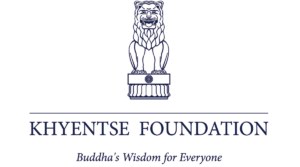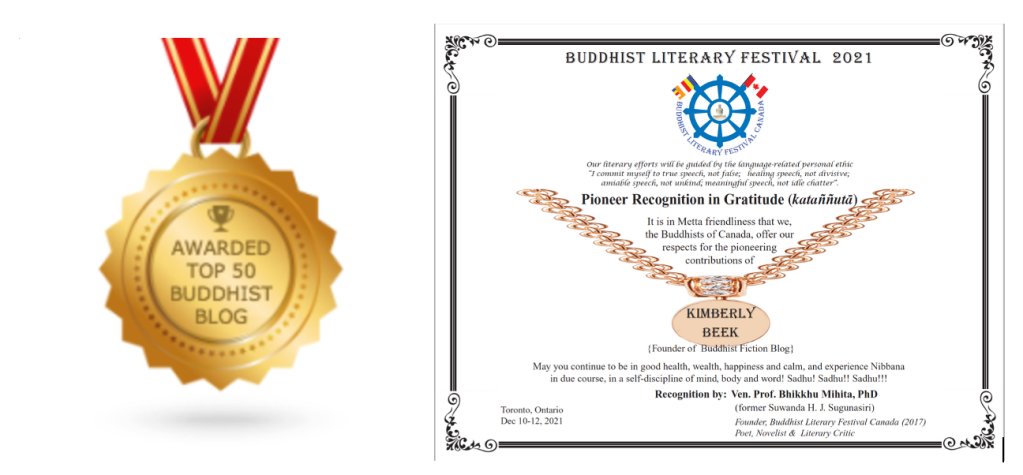This fall, Shambhala Publications will launch a children’s imprint called Bala Kids. The aim of the imprint is to inspire “the next generation through the Buddhist values of compassion and wisdom. ” Shambhala has put out a call for submissions for this children’s picture book series which will also award a book prize. Here is the link to the call and I have copied the information below: https://www.shambhala.com/call-for-submissions-bala-kids-the-khyentse-foundation-childrens-book-prize/
Just last November I presented a paper about Buddhist fiction and young adult literature (YAL) at Buddhism and Youth: A Symposium at the University of British Columbia for the 7th Annual Tung Lin Kok Yuen Canada Foundation Conference hosted by The Robert H. N. Ho Family Foundation Program in Buddhism and Contemporary Society of UBC. In a session entitled “Literary Adventures,” my presentation lamented a lack of Buddhist fiction intersecting with YAL. Other presentations, however, focused on Buddhist literature for children, which is apparently growing. Buddhist Anglophile literature is indeed growing in the West for readers of all ages.
Thank you to my friend James for alerting me to this great news.
Copy of the call for submissions . . . .
Call for Submissions: Bala Kids & The Khyentse Foundation Children’s Book Prize
We are delighted to announce that Shambhala is launching a children’s imprint named Bala Kids in the Fall of 2018. Bala Kids will be devoted to inspiring the next generation through the Buddhist values of compassion and wisdom.
With a shared vision to inspire and educate generations to come, and to encourage the development of Buddhist resources for parents and children, Khyentse Foundation and Bala Kids are teaming up to offer the Khyentse Foundation Children’s Book Prize for the best Buddhist children’s book manuscript. Submissions of exceptional stories for children ages 0–8, both fiction and nonfiction, from all Buddhist traditions, are warmly welcomed, and new authors are especially encouraged to apply. The winning submission will receive a prize of $5,000 and will be offered a publishing contract from Bala Kids.
Guidelines
- Content: Any complete manuscript in English for a picture book for children ages 0-8, expressing Buddhist values, themes, and traditions, is welcome. Submissions on secular mindfulness, meditation, or yoga will not be considered for this award.
- Format: The book should be conceived as a full-color, full-size standard children’s picture book (not a board book). The exact trim size and page number will depend on the content and will be determined by the publisher, but generally the book should be conceived as ranging between 24 and 48 pages.
- Illustrations: The prize is offered for the manuscript itself, which may or may not be submitted with illustrations, although submission of illustrations (with permissions cleared) is encouraged. Choosing the final illustrations for the book will be the responsibility of the publisher.
- Consideration: All submissions will be reviewed by both Khyentse Foundation and Bala Kids, and will be assessed based on their creativity, message, and significance. It is possible that Bala Kids will make publication offers to multiple submissions; however, the Children’s Book Prize will be awarded to only one recipient. If there are no submissions that meet the standards of Khyentse Foundation and Bala Kids, the prize will be withheld until there is a new round of open submissions.
- Contract: The winner of the prize will be offered a publishing contract by Bala Kids. All terms and conditions of the contract offer will be worked out between the author(s) and the publisher. Khyentse Foundation will not be directly involved in this process.
How To Submit
All manuscripts, along with accompanying illustrations, should be submitted with a cover letter that includes a short author biography, book summary, and the intended message of the book.
Please e-mail submissions to balakids@shambhala.com with the subject line: KF Book Prize Submission.
The winning author will be notified by May 15, 2018.
Closing date: February 15, 2018
Prize award: $5,000 and publication offer with Bala Kids
————————-






